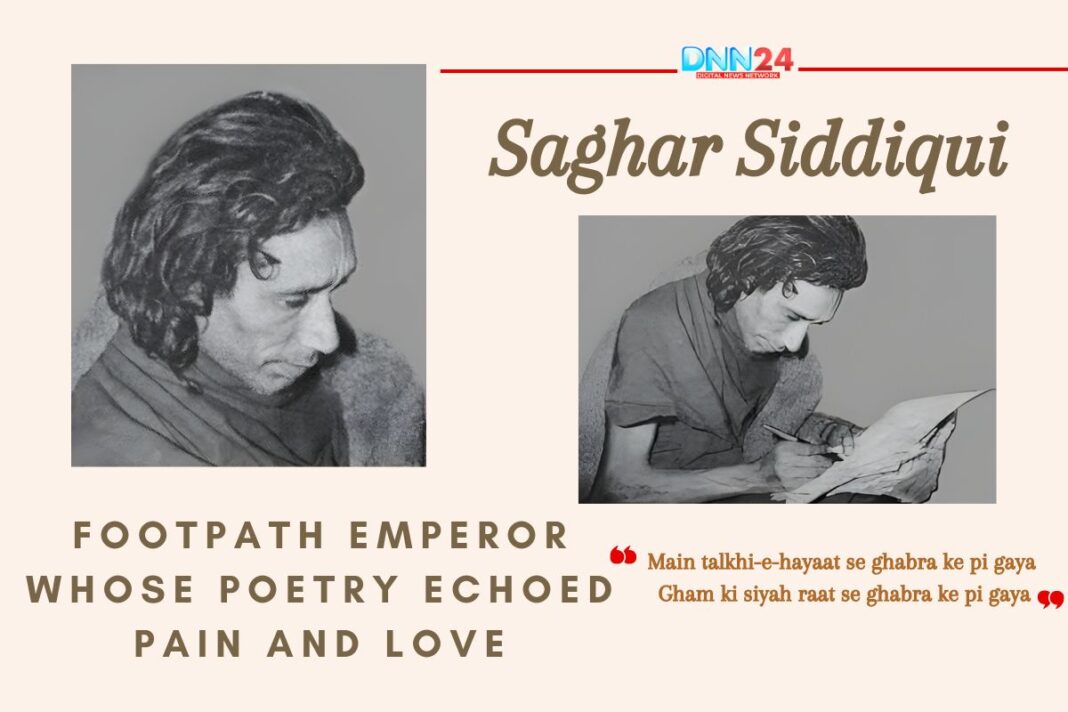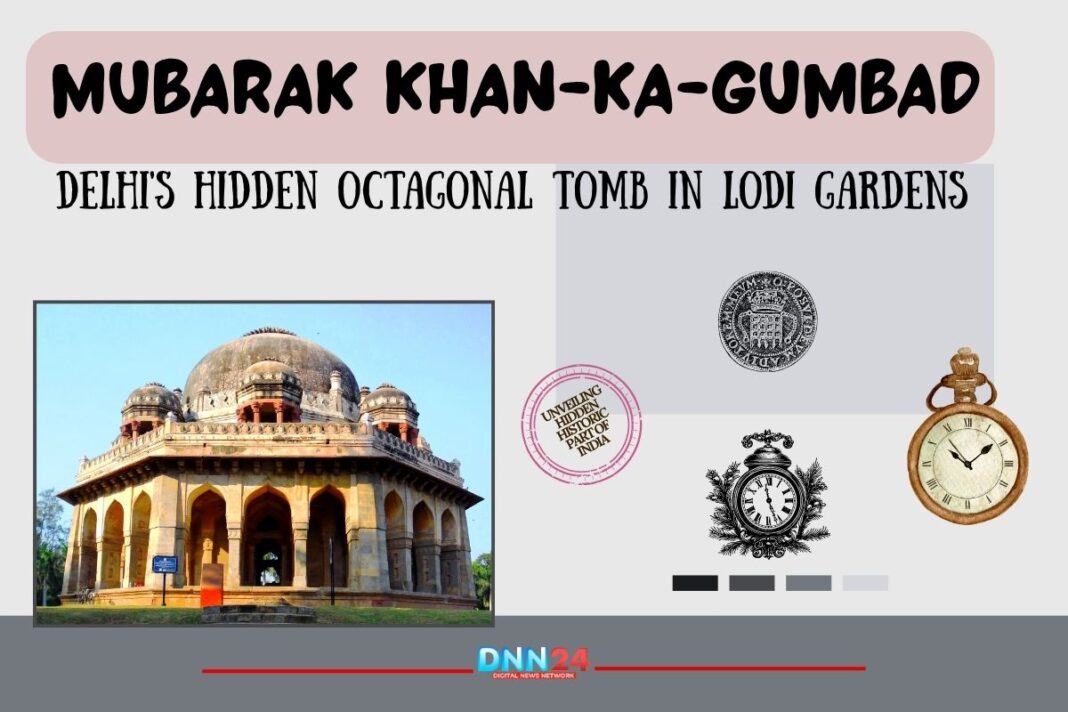In the world of Urdu literature, specific names live forever because their poetry carried the weight of their suffering. Mohammad Akhtar, who became famous as Saghar Siddiqui, was one such poet. His life was a testimony to poverty and helplessness, yet his verses possessed a depth that placed him among the most beloved poets of his time. His poetry was not merely a play of words. It was a spiritual voice filled with pain, love, and humanity.
Zindagi jabr-e-musalsal ki tarah kaati hai
Saghar Siddiqui
Jaane kis jurm ki paai hai saza yaad nahi
While other poets wrote from comfort, Sagar wrote from the streets. His words were born in alleys where hunger walked beside him. Every line he penned carried the authenticity of lived experience. The beauty of his poetry lay in its rawness, in its refusal to decorate suffering with false hope. He gave voice to those who had none, and his ghazals became the anthem of the forgotten. His popularity grew not because he sought fame, but because his words resonated with the hearts of ordinary people.
Jis ahd mein lut jaaye faqiron ki kamai
Saghar Siddiqui
Us ahd ke sultan se kuchh bhool hui hai
Early Years: When Poverty Shaped a Poet
Saghar Siddiqui was born in 1928 in Ambala. His family lived in extreme poverty, which meant he never received a proper education. However, his natural talent and passion for poetry were evident from a young age. An older man named Habib Hasan from his neighbourhood provided him with some basic knowledge. When the poverty of Ambala became unbearable, young Mohammad Akhtar left home at just thirteen or fourteen years old and moved to Amritsar.
Kal jinhein chhoo nahi sakti thi farishton ki nazar
Saghar Siddiqui
Aaj wo raunaq-e-bazaar nazar aate hain
There, he found work at a shop that made combs and learned this craft. During this period, the poet inside him awakened. He began writing verses, initially using the pen name Nasir Hijazi, before adopting the name Saghar Siddiqui. His childhood was spent watching the world from below, seeing how wealth and power crushed the weak. These early observations would later form the backbone of his poetic expression.
Ai dil-e-be-qarar chup ho ja
Saghar Siddiqui
Jaa chuki hai bahaar chup ho ja
The Night That Changed Everything
Sagar’s literary journey began in 1944, when an All-India Mushaira was held in Amritsar. A friend helped him get the opportunity to recite his poetry at this gathering. His melodious voice and the depth of his verses captivated the entire audience. That night transformed him from an unknown comb maker into a celebrated poet. After this breakthrough performance, he started receiving invitations to mushairas in Lahore and Amritsar.
Hashr mein kaun gawahi meri dega ‘Saghar’
Saghar Siddiqui
Sab tumhare hi tarafdaar nazar aate hain
Poetry became not only his path to fame but also his means of livelihood. He left behind the comb-making trade forever. The mushaira that night was packed with established poets, yet when this young man from nowhere stood up and recited, the hall fell silent. His words cut through pretence and reached directly into hearts. People who had come to hear famous names left remembering only Sagar. This was the moment when destiny chose him, plucking him from obscurity and placing him under the spotlight he never asked for but richly deserved.
Maut kahte hain jis ko ai ‘Saghar’
Saghar Siddiqui
Zindagi ki koi kadi hogi
The Golden Years and the Fall
After the partition of India, Sagar moved to Lahore, where he received guidance from the master poet Lateef Anwar Gurdaspuri. The period from 1947 to 1952 proved to be his golden era. His ghazals and nazms appeared in numerous newspapers and literary magazines. During this time, he also wrote songs for films. However, after 1952, bad company led him into addiction.
Aaj phir bujh gaye jal jal ke umeedon ke charagh
Saghar Siddiqui
Aaj phir taaron bhari raat ne dam tod diya
Even in his intoxicated state, he continued writing poetry, and during this phase, he created some of his most remarkable works. The addiction that destroyed his body somehow sharpened his poetic vision. His verses became darker and more profound, as if the chemicals in his blood allowed him to see truths that others missed. Friends who cared for him watched helplessly as he descended into this abyss. Yet they could not deny that even his decline produced literary gold that would outlive them all.
Main aadmi hoon koi farishta nahi huzoor
Saghar Siddiqui
Main aaj apni zaat se ghabra ke pi gaya
The Poetry That Touched Souls
Sagar’s poetry reflected pain, the sorrow of existence, and humanity’s struggles. His language was heart-touching yet straightforward. He beautifully expressed the pain of love, the struggles of poverty, and social injustice in his verses. The simplicity of his poetry contained profound depth. Many of his famous couplets remain on people’s lips to this day. He wrote about separation with the authority of someone who had lost everything.
Log kahte hain raat beet chuki
Saghar Siddiqui
Mujh ko samjhao! Main sharabi hoon
His words about hunger came from nights spent without meals. When he described loneliness, listeners felt the cold of those footpaths where he slept. Other poets might have romanticised suffering, but Sagar reported it honestly. His poetry demanded no sympathy, offered no excuses. It simply presented life as he lived it, stripped of all decoration. This honesty made his work timeless. Decades after his death, new generations discover his verses and find their own pain reflected there, proving that genuine expression never ages.
Tum gaye raunaq-e-bahaar gayi
Tum na jao bahaar ke din hain
Stories from a Wandering Life
Several interesting incidents marked Saghar Siddiqui’s life. Once, at a Lahore mushaira, he arrived intoxicated. Despite his condition, when he began reciting his ghazal, his pain-filled voice and melody mesmerised the audience. People spontaneously began applauding his verses. Another story tells how he often recited his ghazals and nazms to passersby on the street, surviving on whatever they gave him. This mendicant lifestyle made his poetry even more authentic and profound.
Bhooli hui sada hoon mujhe yaad kijiye
Saghar Siddiqui
Tum se kahin mila hoon mujhe yaad kijiye
He had no fixed address, no regular meals, no certainty about tomorrow. Yet he possessed something most comfortable people never find: absolute freedom. He answered to no patron, flattered no influential person, and compromised nothing for convenience. His poverty was his independence. When he recited poetry on the streets, he was not begging but sharing. Those who gave him money were not donors but students paying for a lesson in humanity. This inverted relationship confused society but made perfect sense to Sagar.
Mar gaye jin ke chahne wale
Un hasinon ki zindagi kya hai
Recognition Without Reward
Sagar never received any major government or international award. However, the love he received from people and the respect he earned in literary circles were more valuable than any prize. His poetry was so popular that several of his books, including “Zahar-e-Aarzoo,” “Gham-e-Bahaar,” “Shab-e-Aagahi,” and “Kulliyat-e-Sagar,” found places in people’s hearts. His poetry gave ordinary people the courage to acknowledge and express their pain in words.
Hai dua yaad magar harf-e-dua yaad nahi
Saghar Siddiqui
Mere naghmaat ko andaaz-e-nawa yaad nahi
The establishment ignored him because he refused to play their games. Awards go to those who network, who attend the right gatherings, who praise the right people. Sagar did none of this. He lived on his own terms, which meant dying poor. But the people who mattered, the ordinary listeners whose lives mirrored his own, they gave him something no committee could bestow: genuine love. His books passed from hand to hand, read until pages fell out, memorised by people who never memorised anything else.
Ab kahaan aisi tabiyat wale
Chot kha kar jo dua karte the
A Legacy That Lives On
Saghar Siddiqui’s poetry remains alive today. His ghazals and nazms still inspire young poets. The boldness and helpless reality in his poetry still exist today. His work sent a message to future generations that a true poet feels life’s pain and expresses it in poetry, no matter how difficult it may be. Modern poets study his technique, his imagery, his refusal to compromise. They learn that popularity without integrity means nothing. His verses appear in films, in television shows, in WhatsApp forwards.
Ai Adam ke musafiro hoshiyar
Saghar Siddiqui
Raah mein zindagi khadi hogi
People who never read poetry know his lines. This widespread recognition came after his death, which is both tragic and fitting. During his lifetime, he needed money for food. Now he needs nothing, yet his words have become currency in the emotional marketplace. Students write theses about him. Scholars analyse his metaphors. But the authentic tribute comes when someone, heartbroken, whispers his couplet in the dark, finding solace in shared suffering.
Kaante to khair kaante hain is ka gila hi kya
Phoolon ki vaardaat se ghabra ke pi gaya
The Emperor of the Footpath
Saghar Siddiqui lived the life of a mendicant, but the majesty in his poetry is something very few poets achieve. He was an ocean of pain, love, and poverty whose depth is impossible to measure. He died on July 19, 1974, on a footpath in Lahore. Though his life’s journey was sorrowful, his poetry will live forever, and his position in Urdu literature will always remain elevated.
Charagh-e-toor jalao bada andhera hai
Saghar Siddiqui
Zara naqaab uthao bada andhera hai
The footpath where he died was not different from the many footpaths where he slept, recited poetry, and dreamed. Some see tragedy in this ending. Others see perfect consistency. A man who lived without walls died without walls. A poet who wrote about the ground killed on the ground: he asked nothing from the world, and the world gave him nothing, which somehow makes his legacy richer.
Ye kinaron se khelne wale
Doob jaayein to kya tamasha ho
Buildings crumble, empires fall, but words survive. Sagar’s empire was never built of stone. It was constructed of breath and sound, of rhythm and rhyme, of truth too painful for comfort. That empire stands today, larger than any king’s domain, and he rules it still: the eternal emperor of the footpath, whose throne was dust but whose crown was made of stars.
Also Read: Kovai Kulangal Padhukappu Amaippu: Ordinary Citizens Revived Coimbatore’s Dying Lakes and Rivers
You can connect with DNN24 on Facebook, Twitter, and Instagram and subscribe to our YouTube channel.



